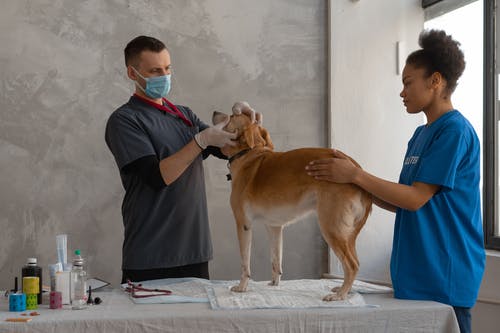
Adopting a new pet is a great act of kindness. There are thousands of homeless pets seeking a new permanent home, and adopting an animal not only improves your life but also saves theirs. Nonetheless, bringing an adult pet into your home is not the same as getting a very young pup. Each has advantages and disadvantages. You should be prepared for the first several weeks after your newly adopted pet arrives in your house. The more fully equipped you are, the easier the move will be.
How to Support Them During the Transition Period
Adopting a pet can be daunting if you don’t know where to start, but bringing a puppy or kitten home can also be fun and exciting. This is the first of many bonding moments between you and your new furry buddy. Here are the four things you can do to assist your new pet in reducing stress and assuring a smooth transition for everyone.
Consider Costs
The cost of adoption varies according to the type of pet, breed, and age. Adoption fees typically cover de-sexing, a basic physical exam, preliminary vaccinations, and microchipping. Pets have a variety of general expenses that you should consider before adopting. Before getting one, make a budget for food, training, toys, activities, grooming, vet treatment, and pet oral health care.
Buy Supplies
Before bringing an adopted pet home, be sure you have all of the important things your pet may need. For a canine, a leash, collar, ID tag, bowls, food, treats, toys, and grooming tools are all initial products. Other pets will require different supplies, so do your research to ensure you prepare to greet them after they’ve been adopted.
Schedule a Vet Visit
Don’t base your adoption pet’s well-being simply on its appearance. A full wellness examination is required for newly adopted pets to ensure your pet is as healthy as possible, specifically before they are taken home or introduced to other pets. In addition, parvovirus vaccinations for kittens and puppies are given in a series, so keeping your pet up to date on immunizations is critical throughout the first few months of adoption.
Give Them Time
Be aware that your newly adopted pet might behave differently in your home than it did at the shelter or foster home. A lengthy discussion with the foster parents could give you a sense of the pet’s character and routines. However, once you bring it home, you cannot identify how it will behave. Occasionally, your new pet may take weeks or months to show its real nature.
Be patient and caring while remaining consistent. Make sure that it is given adequate exercise, mental stimulation, sociability, and attention. These factors contribute to a long, healthy, and happy life together. If you are looking for a vet clinic to check your pet’s health regularly, you can search the internet for “vet near me” to get accurate results.
Final Thoughts
Caring for a new companion pet necessitates much more than offering food, drink, and protection. It takes research and meticulous preparation to bring the right pet into your home and ensure that your lifestyle is suitable for your pet. Remember, by providing them with proper care; your new adopted pet will turn into a happy, healthy, and faithful friend for many years to come.









